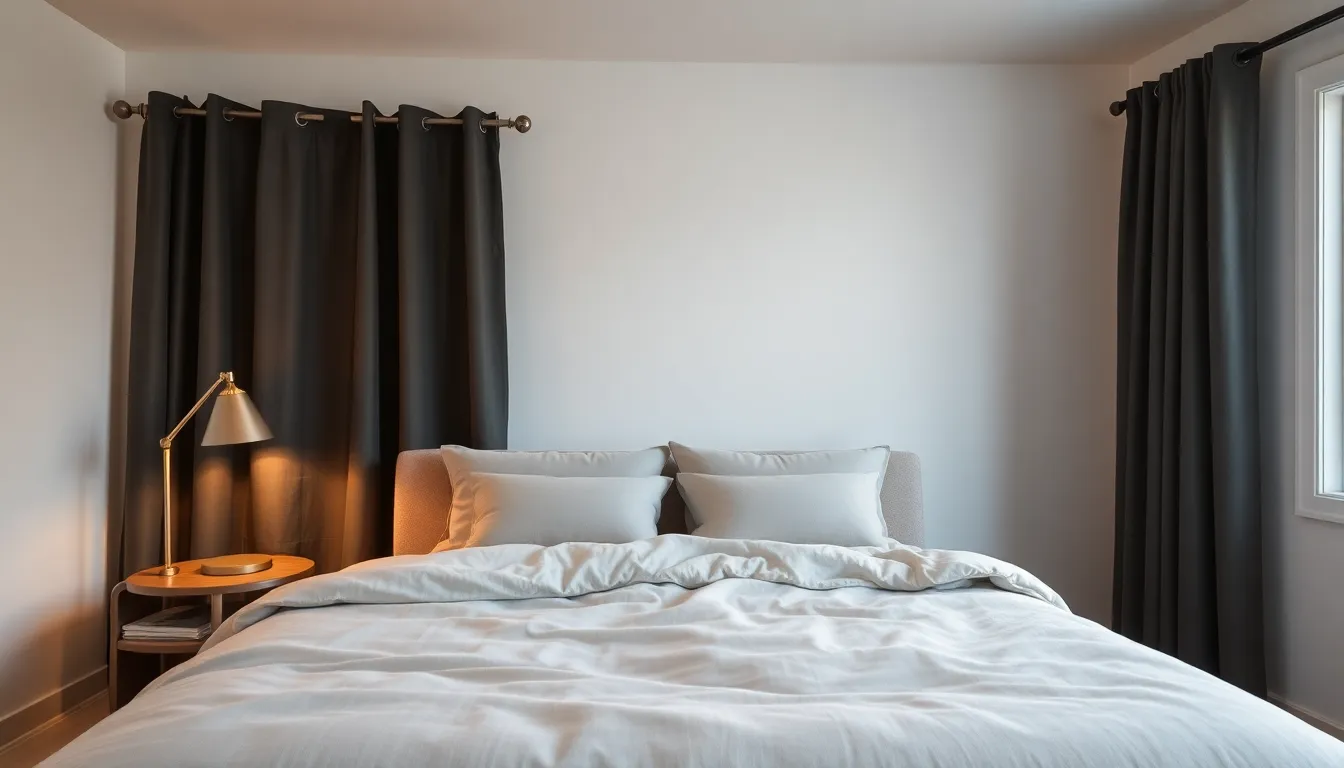In today’s fast-paced world, getting quality sleep often takes a backseat. Yet, restorative sleep is vital for physical health and emotional well-being. It’s during these precious hours that the body repairs itself, the mind processes information, and energy levels recharge for the day ahead.
Understanding the essentials for restorative sleep can transform restless nights into rejuvenating slumber. From creating a calming sleep environment to adopting bedtime rituals, small changes can lead to significant improvements. This article delves into the key elements that contribute to a restful night, ensuring readers wake up refreshed and ready to tackle whatever life throws their way.
Table of Contents
ToggleUnderstanding Restorative Sleep Essentials
Restorative sleep plays a vital role in overall health, ensuring the body and mind function optimally. Recognizing its importance can lead to actionable steps for improving sleep quality.
Importance of Restorative Sleep
Restorative sleep enhances cognitive functions, physical health, and emotional balance. Sleep allows the body to repair tissues and muscles, regulate hormones, and strengthen the immune system. During deep sleep, the brain processes information, consolidating memories and enhancing learning. Insufficient restorative sleep can lead to decreased alertness, impaired judgment, and increased stress.
Benefits of Quality Sleep
Quality sleep provides numerous benefits that contribute to well-being.
- Improved Concentration: Sleep fosters focus and mental clarity, supporting daily tasks.
- Enhanced Mood: Well-rested individuals experience lower anxiety and better emotional resilience.
- Physical Health: Quality sleep reduces the risk of chronic conditions like obesity, diabetes, and heart disease.
- Better Immune Function: Sleep strengthens the immune response, helping fend off illnesses.
- Increased Productivity: Adequate rest leads to heightened efficiency and creativity in work and personal pursuits.
Key Components of Restorative Sleep Essentials

Restorative sleep requires a blend of environmental factors and personal habits. Understanding these key components can significantly enhance sleep quality.
Sleep Environment
Creating a conducive sleep environment is crucial for restorative sleep. Consider the following elements:
- Darkness: Use blackout curtains or sleep masks to block light. Darkness promotes melatonin production, essential for sleep initiation.
- Temperature: Keep the room cool, ideally between 60°F and 67°F. A cooler environment fosters deeper sleep stages.
- Noise Reduction: Minimize noise with earplugs or white noise machines. Consistent sounds can enhance relaxation and prevent disturbances.
- Comfortable Bedding: Invest in a quality mattress and pillows that provide proper support. Suitable bedding plays a vital role in physical comfort during sleep.
- Air Quality: Maintain fresh air circulation with plants or air purifiers. Clean air improves overall sleep quality.
Sleep Hygiene Practices
- Consistent Sleep Schedule: Go to bed and wake up at the same time daily. Consistency regulates the body’s internal clock.
- Limit Caffeine: Avoid caffeine at least six hours before bedtime. This strategy reduces potential sleep disruptions.
- Establish a Bedtime Routine: Engage in relaxing activities before sleep, such as reading or gentle stretching. Routines signal the body that it’s time to wind down.
- Limit Screen Time: Reduce exposure to screens one hour before bed. Blue light interferes with melatonin production and sleep onset.
- Physical Activity: Incorporate regular exercise, but avoid vigorous workouts close to bedtime. Physical activity promotes better sleep quality when timed appropriately.
Techniques for Improving Restorative Sleep
Employing effective techniques for improving restorative sleep can significantly enhance overall well-being. Below are key methods that promote better sleep quality.
Relaxation Techniques
Incorporating relaxation techniques can foster a state conducive to sleep.
- Deep Breathing: Engaging in deep breathing exercises calms the nervous system and reduces anxiety.
- Progressive Muscle Relaxation: Tensing and relaxing different muscle groups promotes physical relaxation and mental clarity.
- Meditation: Practicing mindfulness meditation helps quiet the mind and focus on the present, leading to reduced stress.
- Visualization: Imagining a peaceful scene encourages a sense of tranquility, making it easier to drift off.
- Gentle Yoga or Stretching: Performing light yoga or stretches before bed releases tension and prepares the body for sleep.
Sleep Scheduling
Establishing a consistent sleep schedule enhances overall sleep quality and supports the body’s natural circadian rhythm.
- Set a Regular Bedtime: Going to bed at the same time each night reinforces the body’s sleep-wake cycle.
- Wake Up at the Same Time: Rising at the same time each day, even on weekends, helps regulate sleep patterns.
- Limit Naps: Minimizing naps or restricting them to short periods during the day prevents interference with nighttime sleep.
- Monitor Sleep Duration: Aim for 7 to 9 hours of sleep per night, depending on individual needs for optimal functioning.
- Use a Sleep Diary: Keeping a sleep diary tracks patterns, helping identify factors that influence sleep quality.
Common Sleep Disruptors
Various factors can disrupt restorative sleep. Identifying these disruptors is crucial for cultivating better sleep habits.
Stress and Anxiety
Stress and anxiety contribute significantly to sleep disturbances. High levels of stress can trigger an overactive mind, making it difficult for individuals to relax and fall asleep. Anxiety often leads to racing thoughts, physiological symptoms like increased heart rate, and a heightened state of alertness. Techniques such as mindfulness meditation, deep breathing exercises, and journaling can mitigate these feelings. Addressing stress through lifestyle changes, like regular physical activity and time management, also proves beneficial for improving sleep quality.
Electronic Devices
Electronic devices emit blue light, which impairs melatonin production, a hormone essential for sleep regulation. Extended screen time before bed—such as watching television, using smartphones, or playing video games—can keep the brain overly stimulated. Limiting device usage at least one hour before bedtime significantly enhances the ability to fall asleep. Implementing blue light filters on devices or using specialized glasses can further reduce exposure. Establishing a device-free zone in the bedroom also promotes a more calming sleep environment.
Prioritizing restorative sleep is essential for achieving optimal health and well-being. By implementing the right strategies and creating a supportive sleep environment, individuals can significantly enhance their sleep quality. Embracing consistent bedtime routines and managing stressors can lead to more restful nights and rejuvenated mornings.
Taking actionable steps toward improving sleep hygiene not only benefits physical health but also boosts emotional resilience and cognitive function. With the right tools and techniques, anyone can transform their sleep experience and wake up feeling refreshed and ready to tackle the day.




